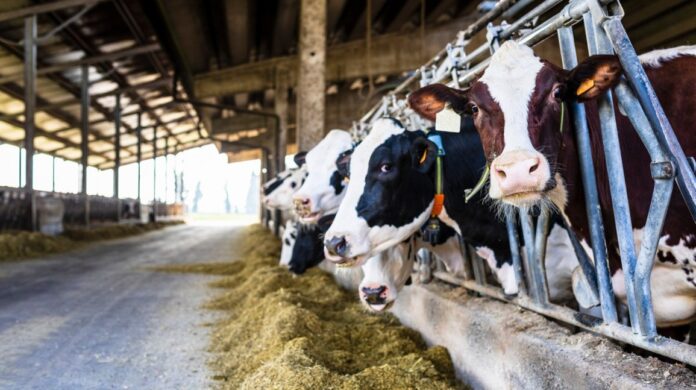LAHORE: The Punjab government has allocated Rs13.3 billion for the livestock and dairy sector in the provincial budget for the fiscal year 2020-21.
Out of the total budget announced for the livestock and dairy sector during the budget session in the Punjab Assembly on Monday, Rs 11.6 billion has been allocated for non-development projects while Rs1.7 billion has been allocated for development projects.
The provincial government has allocated Rs375.2 million for enhancing beef production, Rs116.2 million for the propagation of backyard poultry, Rs100 million for provision of veterinary services in rural areas of Punjab, Rs82 million for the improvement of the breed through Progeny Testing Programme (PTP), DNA bank and enhancement of non-descript cattle and Rs300 million for provision of veterinary services and capacity building in Rajanpur.
“95pc of Pakistan’s dairy sector is informal which sells loose milk. The government has already placed a ban on the sale of loose milk from 2022 onwards. However, no allocation has been made for the capacity building of the informal dairy sector to ease this transition,” said Tajammal Mehdi, a dairy development expert, while talking to Profit.
“We often hear that the Punjab Food Authority (PFA) has disposed of thousands of litres of hazardous milk. That’s not enough. The government needs to invest in capacity building of the informal dairy farmers and invest in educating them about pasteurisation,” he said.
He added that the quality of loose milk can be greatly improved by implementing farm to sale point safety interventions and by ensuing minimum pasteurisation.
Milk pasteurisation is a process that uses mild heat to eliminate pathogens from milk and extend its shelf life. “The process is intended to sterilise food by destroying or deactivating organisms that contribute to spoilage,” said Tajammal Mehdi.
Mehdi stressed that across the world milk is recognised as a key source of nutrition and governments are increasing regulations and introducing minimum pasteurisation laws to ensure milk quality in order to safeguard the public’s health.
He demanded that considering the health hazards of loose milk, a nationwide minimum pasteurisation law should be implemented to save people from consuming bacteria-contaminated milk.
“All types of milk and dairy products have the potential to transmit pathogenic (disease-causing) organisms to humans. That is why it is important to ensure a regulatory framework for minimum pasteurization of milk,” he said.
“Food authorities across the country are doing a commendable job in terms of ensuring the supply of safe and healthy food. Such regulatory bodies have an important part to play in ensuring the quality of loose milk,” he added.




